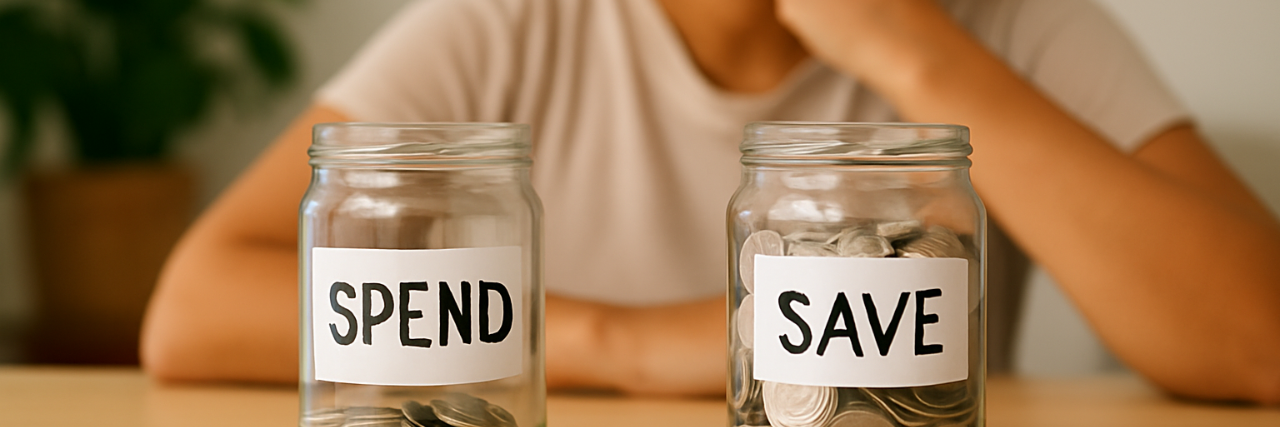Spend it or Save it? What to do With Your Tax Refund This Year.
The contents provided on this page are for informational purposes only and do not constitute financial advice. Consider your personal circumstances and objectives before making any financial decisions.
If you’re one of the many Australians expecting a tax refund this year, you might already be mentally spending it. New sneakers? Weekend away? New Oura Ring and a scented candle, you definitely needed?
Before you click ‘add to cart’, take a minute to read our ideas below.
In 2022, of those who received a tax refund in Australia, the average tax refund sat at $2,576. Even if yours is less, this is still a pretty decent cash injection if managed wisely. So, how can you make the most of it? We’ve broken it down from low-risk, smart-money moves all the way to ‘treat yourself and have a life’ territory.
1. Pay down debt – the boring yet hero move
Let’s start where it counts. Using your tax refund to pay off debt can be one of the most effective ways to boost your financial well-being.
But where do you start?
- Government debt (like HELP/HECS) comes with indexation – even if it’s ‘low interest,’ it’s still growing. Regularly chucking chunks of cash into it might help to reduce the number of years of payment.
- Credit card debt or personal loans. Target the highest interest rate first. Knocking out those big interest charges can save you money in the long run.
This isn’t flashy. It won’t get many likes on Instagram. But it will earn future-you some serious peace of mind.
2. Invest in yourself or your business
Once you’ve got your essentials sorted and paid for, consider putting your refund to work for long-term gain.
- Find a course or certification that upskills you, which can pay dividends down the line when you can ask for a pay rise or offer a new service.
- Business tools or equipment could make your side hustle more profitable or help you finally launch that Etsy empire.
- Want to test a new income stream? Using a portion of your refund to dip a toe into a side hustle is a calculated risk with the potential to provide more income in the months to come.
Yes, there’s risk. Remember, not every idea takes off. But reinvesting in yourself is rarely wasted.
3. Save or invest (if you’re feeling steady)
Some people use their tax refund to kick-start their investing journey. Think index funds, micro-investing platforms, or even topping up your super. This strategy generally works best if your debts are under control and you’ve got a 3-6 month emergency fund set aside.
It’s not as instantly rewarding as a shopping spree, but the long game can be powerful as you see your returns grow.
4. The ‘one treat’ rule
Now, let’s be real. It’s tempting to blow it all on something flashy. Easy come, easy go right?
A new bag, a weekend out, an oversized LEGO set you justify as “collectible.” These are the high-risk, low-return plays.
But we’re not money monsters here at Beforepay! We know life’s for living, right?
So, no matter which way you allocate your tax refund, set aside a small amount, $50 or so, to celebrate smart money moves with a lunch out with a mate. Just don’t let it become a three-course all afternoon affair that eats your entire refund.
TL;DR
Your tax refund is a financial reset button. Use it wisely.
- Pay off high-interest or government debt first
- Invest in your earning potential
- Consider saving or micro-investing
- Treat yourself (a little... not a lot)
Disclaimer: Beforepay Group Ltd, ABN: 63 633 925 505. Beforepay allows eligible customers to access their pay and provides budgeting tools. Beforepay does not provide financial products, financial advice or credit products. The views provided in this article include factual information and the personal opinions of relevant Beforepay staff and do not constitute financial advice. Beforepay and its related bodies corporate make no representation or warranty, express or implied, as to the accuracy, completeness, timeliness or reliability of the contents of this blog post and do not accept any liability for any loss whatsoever arising from the use of this information. Please read our Terms of Service carefully before deciding whether to use any of our services.


